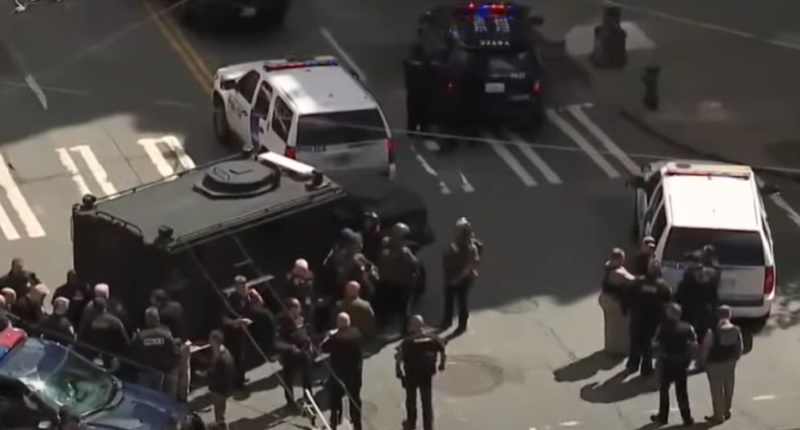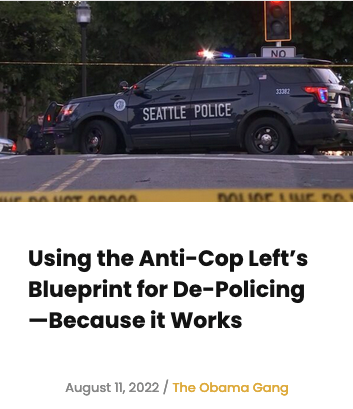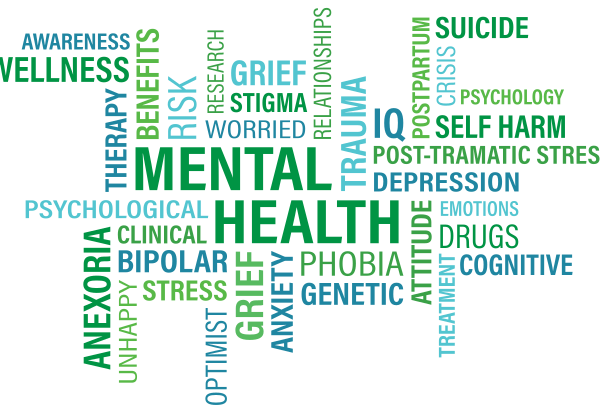
By Steve Pomper
I try to vary the topics and people I address here to keep things fresh for NPA’s supportive and discerning readers. And though I wrote an article only a few weeks ago involving The Seattle Times’ police critic Mike Carter’s contributions to the “Blueprint for De-Policing,” he’s at it again—So… so am I.

I don’t know Carter. He could be a nice guy, at least, he’s a good writer. Maybe I’d enjoy chatting with him over a cup or a pint. Then again, maybe he’s not, and I wouldn’t. Either way, I bristle at any writer who continues to kick the cops while they’re down.
He’s now asking: “Transparency vs. trauma: Are inquests into King County killings by police worthwhile?” [link added] He adopts the slant that since inquests rule in the officers’ favor so often, there must be something wrong with the process. How about maybe the cops are doing their jobs properly. It’s okay to think that because, in most instances, it’s true.
Carter writes, “No inquest jury in the past 50 years has found an officer’s actions unjustified.” I understand the temptation in our cynical, divided society to find that outcome questionable. However, couldn’t we also see that result as a good thing, in that officers seem to be doing their jobs correctly? And even in those instances where cops have made mistakes, the vast majority were honest mistakes that happen in police work because the work involves life and death decisions.
Doing anything at all is a tad harder when someone is trying to kill you while you’re trying to do it.
Hey, the last time you made a mistake at work, was someone trying to kill you at the time?

One piece of evidence that bolsters my contention is the first case Carter chose to emphasize as proof of a perceived “inequity” in the inquest process is the Charleena Lyles shooting. Her case was a pure tragedy for Lyles, whom the mental health system let down, for the Lyles family who lost a loved one and may have to contend with whether they could/should have done more for her, and for the cops who were placed in a situation where a person’s actions forced them to shoot to protect themselves.
No one should argue this shooting wasn’t tragic for all parties involved, including the police officers. Everyone wishes it hadn’t happened. The photos of Lyles with her children are heartbreaking. However, in most of the coverage of the incident, including from Heavy.com, are reports of many assertions and accusations the family and cop critics made about the officers’ actions, while offering no realistic alternatives.
Of course, the family made what has become an obligatory accusation that the cops were motivated by racism when they shot Lyles, which is actually a racist accusation. It’s based on zero evidence and only on the fact Lyles is black and the officers are white. The left wants you to believe that fact alone is evidence of racism. For lucid people, that is a heinous and absurd proposition.
“‘Why couldn’t they have Tased her? They could have taken her down. I could have taken her down,’ said Monika Williams, Lyles’ sister, to The Seattle Times.’” People always fabricate neat little alternate scenarios in their minds where they had all the time they needed, and everything went according to plan. Sorry, folks, that’s not how it goes with police work.
After an initially calm interaction between the officers and Lyles, reports say she suddenly went off, allegedly arming herself with two knives, and threatening the officers. According to Heavy, after making a dubious report that a burglar had stolen an X-Box from her apartment, Lyles said, either “Motherf*ckers,” or “Get ready motherf*ckers!”
Then “one officer tells dispatch, ‘We need help…a woman with two knives.’ He tells his partner to tase her but his partner says he doesn’t have a taser.” Reportedly, Lyles also said to the officers, “Do it.

People need to realize just how quickly a switch to violence can occur—a finger snap or blink of an eye. And, these days, it’s likely the officers would also have been criticized for using a Taser to “torture” Lyles.
While I was still an active cop, because of anti-cop, leftist complaints about Tasers, the protocols for deploying them had become almost the same as for lethal force. Because of this, many officers I knew turned in their Tasers. In fact, according to KOMO News 4, via MSN.com, one of the officers involved stopped carrying his Taser only “several days before the shooting.”
Two officers instead of one had responded to this normally “low-priority” call because Lyles had an “officer safety” caution in the system, notifying officers to be aware of mental health issues officers had with her in the past.
No good cop wants to shoot anyone, especially a mentally ill woman. And you’re not thinking normally if you think they do. No statistics show this is anywhere near reality, yet the radical leftists’ mythmaking about cops’ bloodlust for minorities continues.
With police critics and haters, they find any inquest that doesn’t go their way is automatically corrupt. So, they set themselves up to be disappointed and “traumatized.” Of course, losing a family member in an officer-involved-shooting (OIS) is traumatizing—even when it’s justified, as investigators found it was in 2017. And especially when the person who threatened or attacked the officers suffers from mental illness.
Still, cops must react to a person’s violent behavior regardless of mental health concerns. A gun or knife doesn’t lose its lethality when wielded by a violent, mentally ill person. Maybe it’s even worse because the mentally compromised person’s actions are often more unpredictable than those without mental illness. For some strange reason, police critics seem to believe cops have the luxury of treating people with mental health issues differently when they become violent than those without these issues—they don’t. Most often, the cops don’t even know about a person’s mental issues.

That’s the problem when people want to fix what’s not broken—like policing. Can law enforcement improve? Of course, just like any line of work. But before the Left went to work defunding and destroying law enforcement, the Seattle Police Department was viewed as one of the best departments in the nation. Then an incident occurs in a city some 2,000 miles away and suddenly all that disappears. That makes no sense but signals how successful leftists’ messages are when they have politicians, academia, Hollywood, pro sports, and the media on their side.
In Lyles’s case, the cops were familiar with her mental illness and tried to show her great deference. But when, reportedly, standing within “arm’s length,” she threatened to stab the officers, what were they supposed to do?
The officers couldn’t predict she would have a violent psychotic episode after possibly getting them to her apartment under the false pretenses of a bogus 911 burglary call. The Seattle Times reported, on the day Lyles was shot by police, “Surveillance video from the hallway outside the apartment of Charleena Lyles shows no one other than Lyles left or entered her apartment in the hours before she was shot and killed….”
Admittedly, there is a possibility her mental health issues could have had her believing a burglary had taken place.
Karen Kohler, the Lyles’ attorney, makes some reasonable points about the inquests process’s effects on the families of those whose loved ones are killed in an OIS. She “has come to believe the inquest process, flawed or not, serves a public purpose.”
Kohler added, “the county can improve the process: better explaining the inquests to families….” Better explaining not only the inquest process but the reasons for the police officers’ actions are critical for families to understand what happened and why. It doesn’t take away the pain or undo the trauma of their loss, but it could help families better understand what the officers faced.
Of course, there are some families and the cop-haters who will accept no OIS is ever justified. And that’s something society has to deal with. You just can’t force some people to be reasonable, especially when they are emotionally shattered.
However, the inquest process must recognize the irrational expectations of cops, which is now compromising justice in a misplaced attempt to “balance” perceived “inequities.” The fight between cops and people who try to kill them, no matter the circumstances, is not supposed to be a fair one. The cops must “win” every time.
A King County Inquest jury found, according to Q13 FOX News, the officers were justified in shooting Lyles that day. Still, CNN reported, despite the officers’ actions being justified, as Seattle tends to do, the city settled with the family for a reported $3.5 million of taxpayer money.
The tragic Lyles shooting earned the officers the vitriol and contempt of leftist critics, politicians, and the local and national mainstream media. The officers are even suing a city council member for publicly referring to them as “murderers,” regarding the Lyles incident. This is irresponsible and factually untrue. And, again, what did that city council member want the cops to do instead? Allow Lyles to stab them.
Hold up…. Knowing how vehement a cop-hater that city councilmember is, I’ll let you guess the answer.
Still, the unending focus on the cop-critic viewpoint, continually attacking police, without any balance, is what’s unfair. Carter and his ilk might want to consider the possibility that cops are human, too. And they need to officer law enforcement substantive suggestions for realistic alternatives the officers might have done, not only constant criticism.